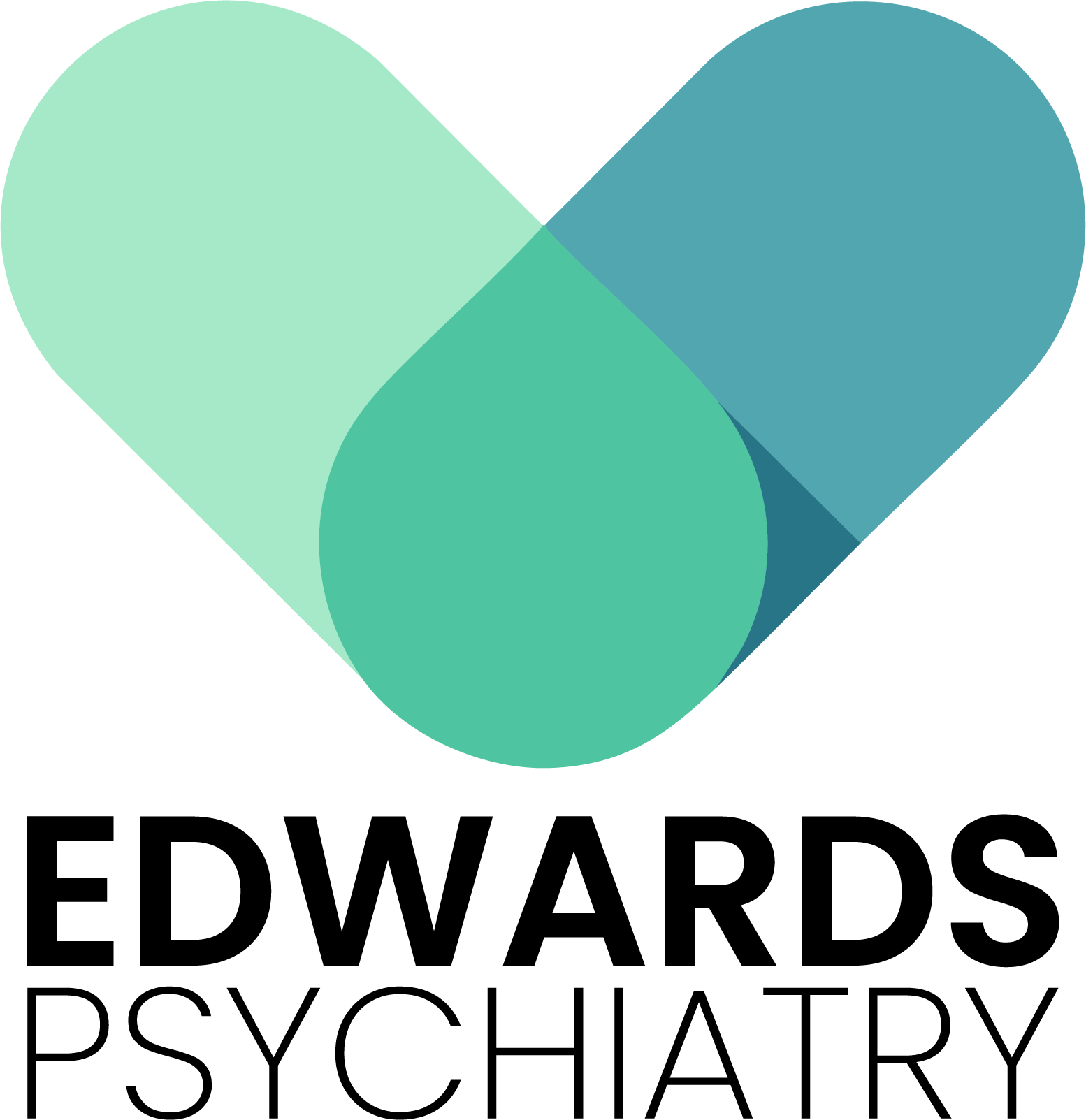ADHD Coaching 101: What It Is, Who It’s For, and How It Can Help | Seattle Mental Health
Managing ADHD is more than taking medication or attending therapy. It requires real-world strategies, structured support, and accountability to navigate daily life successfully. ADHD coaching is designed to provide this practical guidance, helping adults and teens improve focus, organization, and emotional regulation.
In Seattle and across Washington state, ADHD coaching is becoming an increasingly valuable tool for those looking to achieve personal and professional goals while managing the unique challenges of ADHD. At Edwards Psychiatry, we view ADHD coaching as a complementary service to psychiatric care and therapy, helping patients translate insights into actionable strategies that improve day-to-day functioning.
If you are curious whether ADHD coaching might be right for you, or you want a deeper understanding of its benefits, this guide covers everything you need to know.
What Is ADHD Coaching?
ADHD coaching is a structured, goal-oriented form of support designed to help individuals manage ADHD symptoms in practical ways. Unlike therapy, which often focuses on processing emotions and past experiences, coaching emphasizes skill-building, accountability, and actionable strategies for everyday challenges.
An ADHD coach works with clients to:
- Identify personal strengths and weaknesses
- Develop routines and structure in daily life
- Set realistic goals and monitor progress
- Address barriers that impede productivity or focus
Coaching can cover work, school, home responsibilities, time management, organization, and emotional regulation. The goal is to help clients build executive functioning skills and maintain accountability while boosting confidence and self-efficacy.
Research suggests that ADHD coaching can improve executive functioning, motivation, and goal achievement. For many individuals, coaching provides tangible, practical support that complements therapy and medication management.
Who Can Benefit From ADHD Coaching?
ADHD coaching is most often sought by teens and adults who struggle with attention, organization, time management, and follow-through.
It is especially beneficial for people who:
- Have difficulty prioritizing tasks and meeting deadlines
- Struggle with procrastination or inconsistent work habits
- Feel overwhelmed by daily responsibilities
- Need accountability to stay on track with goals
- Want to complement therapy or medication with practical strategies
ADHD coaching is not a replacement for psychiatric care, therapy, or medication. Instead, it provides structured support to help individuals implement strategies and skills that improve daily functioning and long-term outcomes.
Common Misconceptions About ADHD Coaching
Before exploring the benefits in detail, it is important to address some common misconceptions:
Coaching Is Not Therapy
While ADHD coaching can include emotional support, it does not involve treating mental health disorders directly. Coaching focuses on skills, habits, and strategies rather than exploring deep-seated emotional issues.
Coaching Is Not Tutoring
Although ADHD coaching often addresses academic or work-related challenges, it is not a teaching service. Coaches guide clients in developing skills like time management, prioritization, and organization rather than directly teaching subject matter.
Coaching Works Best With Commitment
Success in ADHD coaching requires active participation. Clients need to be willing to implement strategies, track progress, and communicate openly about challenges. Coaching is a partnership, not a passive service.
Key Benefits of ADHD Coaching
ADHD coaching provides multiple advantages that extend beyond therapy or medication alone.
Personalized Strategies and Tools
Coaches work with clients to identify methods that match their ADHD profile. Tools may include planners, reminder systems, visual organizers, and time-blocking techniques tailored to the client’s specific needs.
Accountability and Motivation
Regular coaching sessions create a sense of structure and external accountability. Clients are more likely to complete tasks and achieve goals when progress is monitored and celebrated.
Improved Focus and Productivity
Through targeted exercises and planning strategies, coaching helps clients manage distractions, maintain concentration, and complete tasks efficiently.
Emotional Support and Confidence
ADHD coaching validates challenges while highlighting strengths. Clients gain confidence, reduce self-criticism, and develop a proactive approach to managing ADHD symptoms.
Complementary to Treatment
When combined with therapy or medication, coaching provides practical implementation of insights. This holistic approach ensures that strategies learned in sessions are applied consistently in daily life.
How ADHD Coaching Works
ADHD coaching typically follows a structured, collaborative process:
Initial Assessment
The first sessions focus on understanding the client’s challenges, strengths, and goals. Coaches may ask detailed questions about daily routines, work or school demands, and previous strategies that were tried.
Goal Setting
Clients and coaches define specific, measurable, and achievable goals. These may include improving time management, organizing a workspace, or creating consistent routines.
Strategy Development
Coaches provide practical tools and strategies tailored to the client’s lifestyle and ADHD profile. Strategies may include task batching, digital reminders, or breaking large projects into manageable steps.
Progress Monitoring
Regular check-ins allow clients to track progress, troubleshoot obstacles, and adjust strategies. This process helps build accountability and ensures that approaches are working effectively.
Long-Term Skill Building
Over time, clients develop stronger executive functioning skills, including planning, prioritization, organization, and self-regulation. These skills support ongoing independence and success beyond coaching sessions.
ADHD Coaching for Teens and Adults
ADHD affects both adolescents and adults, but the challenges differ by life stage:
- Teens: Coaching can help with homework, organization, time management, emotional regulation, and social skills. Coaches often work closely with families and schools to create supportive environments.
- Adults: Coaching focuses on work performance, relationships, household management, and life transitions. Strategies emphasize independence, career success, and emotional resilience.
Tailoring coaching to life stage ensures that strategies are practical, relevant, and effective.
Red Flags to Watch for in ADHD Coaching
While ADHD coaching can be highly beneficial, not all coaching services are equally effective. Warning signs of poor coaching include:
Lack of Structure or Goal-Setting
Sessions without clear goals, accountability, or progress tracking are unlikely to produce meaningful results.
Overemphasis on Motivation Without Practical Tools
Coaching should provide actionable strategies, not just encouragement or pep talks.
Limited Understanding of ADHD
Coaches without proper ADHD-specific training may fail to address core challenges or recognize underlying patterns.
Ignoring Client Strengths
Effective coaching highlights strengths and adapts strategies accordingly. A coach who focuses only on deficits may undermine confidence and motivation.
Poor Communication or Availability
Clients should feel heard, supported, and able to ask questions between sessions if needed. Lack of responsiveness can limit the effectiveness of coaching.
Combining ADHD Coaching With Other Treatments
ADHD coaching is most effective when integrated with therapy, medication, or other support services:
- Medication: Helps reduce core ADHD symptoms, making it easier to implement strategies learned in coaching.
- Therapy: Supports emotional regulation, self-esteem, and addressing co-occurring conditions like anxiety or depression.
- ADHD Groups: Provide community, shared experiences, and peer accountability.
This integrated approach ensures that clients receive both practical skill-building and clinical care tailored to their unique needs.
How to Choose an ADHD Coach in Seattle
Finding the right coach requires careful consideration:
- Look for coaches with ADHD-specific training or certification.
- Consider experience working with clients in your age group or life stage.
- Ask about their approach to goal-setting, progress tracking, and accountability.
- Determine availability for ongoing support and communication.
- Ensure compatibility with your learning style and personality.
A consultation session can help determine if a coach is a good fit for your goals, challenges, and preferences.
FAQs About ADHD Coaching
How often should ADHD coaching sessions occur?
Most clients start with weekly or biweekly sessions. Frequency may adjust based on progress and goals.
Can ADHD coaching replace therapy or medication?
No. Coaching complements, but does not replace, therapy or medication. It focuses on practical strategies and accountability.
Is ADHD coaching effective for adults who have struggled for years?
Absolutely. Coaching can help adults develop new strategies, increase productivity, and build confidence regardless of when they receive it.
Do parents need to be involved in teen coaching?
Often yes. Collaboration with parents helps reinforce strategies at home and school.
Is coaching virtual or in-person?
Both options are available. Virtual sessions offer convenience, while in-person sessions may provide a more hands-on approach for some clients. At Edwards Psychiatry, we offer virtual ADHD coaching.
How long does coaching typically last?
Duration varies. Some clients see significant improvements within a few months, while others continue for longer periods to build sustained habits.
The Edwards Psychiatry Difference
At Edwards Psychiatry, ADHD coaching is part of a comprehensive mental health approach. We combine coaching with psychiatric evaluation, therapy, and medication management when appropriate.
We prioritize listening to our clients, understanding their challenges, and creating personalized strategies that align with their strengths, lifestyle, and goals. Our approach helps clients improve focus, organization, and productivity while boosting confidence and resilience.
By offering coaching alongside clinical care, we provide a holistic, practical, and supportive approach to managing ADHD.
Taking the Next Step
If ADHD symptoms are interfering with daily life, ADHD coaching may provide the structure, strategies, and accountability needed to succeed. Edwards Psychiatry offers a consultation to discuss your goals, evaluate your needs, and determine how coaching and other services can help.
Schedule a consultation today and take the first step toward practical support, improved focus, and a more organized, empowered life.
Share This Post
About the Author:
Domenique Edwards, MSN, ARNP, PMHNP-BC
Domenique is the founder of Edwards Psychiatry and a Board-Certified Psychiatric-Mental Nurse Practitioner specializing in ADHD care for adults and families. As a multiracial Black and Italian clinician, she brings both clinical expertise and lived understanding to mental health care, particularly for BIPOC and LGBTQIA+ communities.
Trained at a top university, Vanderbilt University School of Nursing, Domenique has been practicing independently in Seattle since 2017. She's passionate about providing the kind of collaborative, culturally competent psychiatric care she wished her own family had access to, where patients feel truly heard and understood.
You Might Also Like






